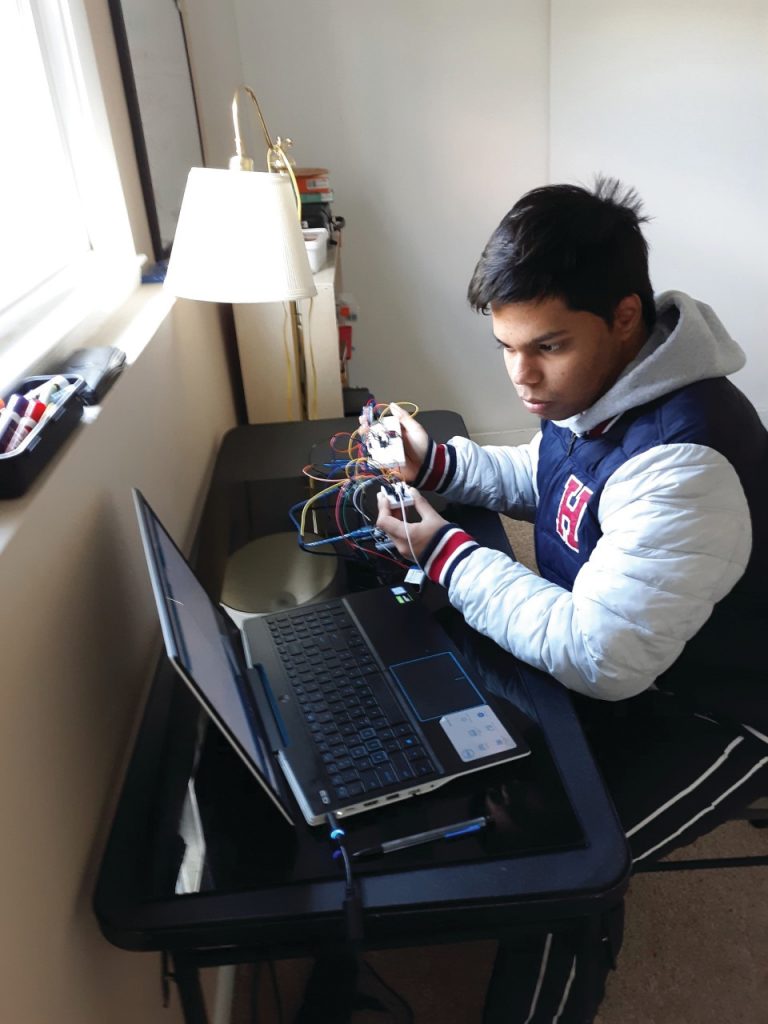
Hands-on lab courses are an integral part of the learning experience for engineering majors. But with campuses closed and students far away from their workspaces during the coronavirus pandemic, instructors who teach these courses are finding ways to make remote learning work.
Steven Marra, associate teaching professor in the Department of Mechanical Engineering, had to shelve the original assignments for his three design-build courses—and convert 50 group projects to more than 150 individual projects that students could still build at home.
“I had several questions to figure out over spring break: What resources do the students have at their homes? What items could be shipped to them, if necessary? What will the deliverables look like? Most importantly, how can I give my students a design experience comparable to what they would have on campus?” says Marra.
First-year students were originally working in groups to build mechatronic animals using motors and sensors as part of an interactive “mechanical zoo” to be displayed on the Homewood campus at the end of April. Each student is now working at home on their own animal creation, such as an octopus with spinning legs and a peanut-eating elephant.
Instead of using all the professional tools and equipment in labs back on campus, junior Olivia Skaug is constructing her final project in the kitchen of her family home in Delaware, using household items like scissors, aluminum loaf pans, and duct tape.
“I’ve had to get inventive when finding tools and equipment to manufacture my heat exchanger, but it was a fun challenge to tackle,” says Skaug. “Engineers have to deal with limitations and evolving specifications all the time. If anything, this is good practice for me to use creativity when faced with an engineering challenge.”
All students must deliver a short video presentation of their projects at the end of the semester. Marra says they can add these videos to their engineering portfolios when they look for jobs or internships, which keeps students motivated to work hard at home.
“The animal project is still really fun, even at home, and it gives me something to do while practicing social distancing. Even though the project has changed, I still see it as an opportunity to show off what I’m capable of,” says first-year student Rishibrata Biswas.
Our researchers, medical teams, staff, and students are working tirelessly to help with testing, patient care, and preventive care—with your support we can do more! Visit engineering.jhu.edu/giving to make a gift in support of our efforts.




